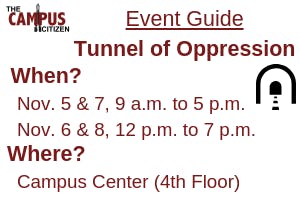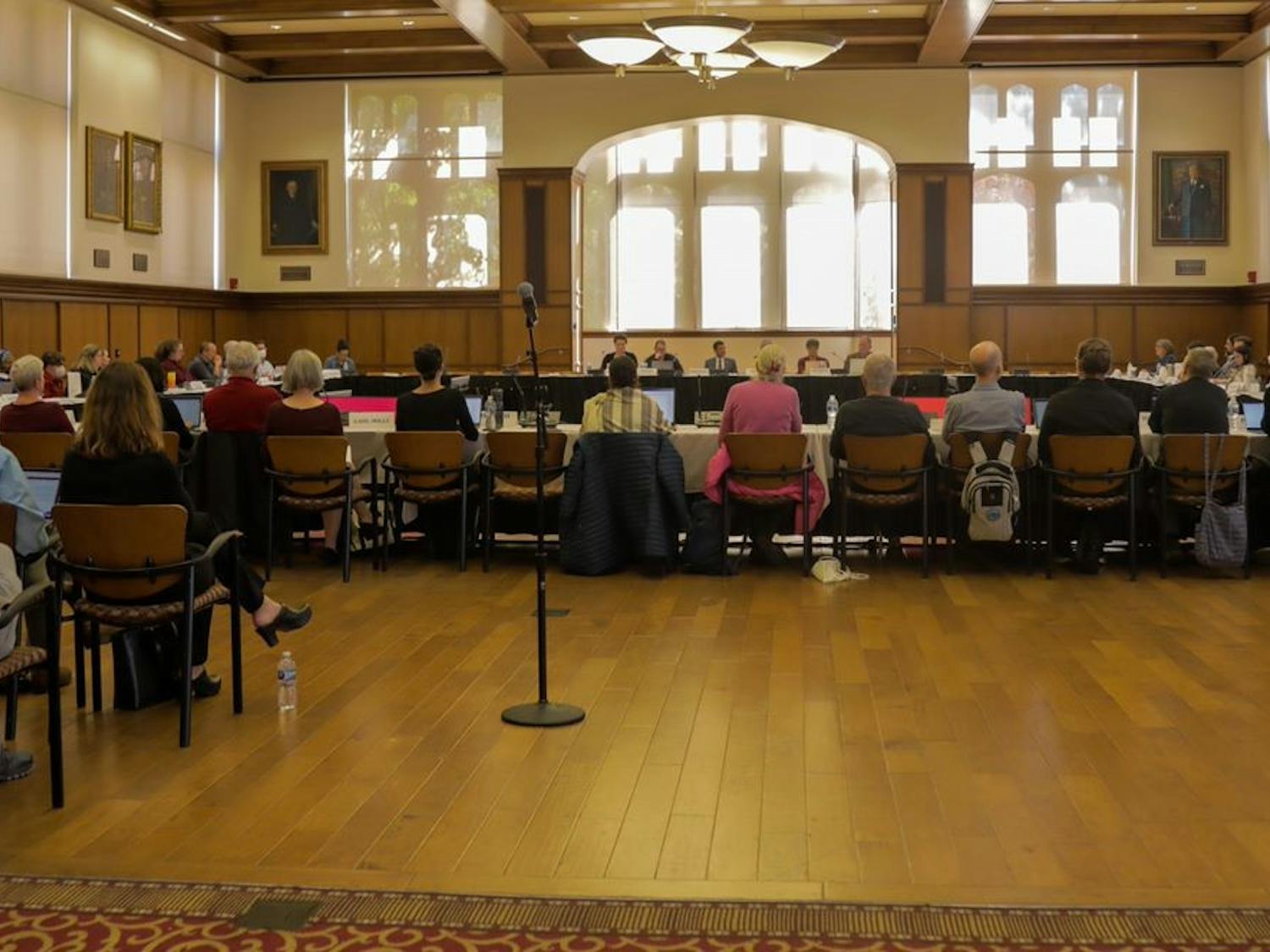
interracial relationships and housing discrimination.
Sarah Long, the program coordinator for Social Justice Education, explained that the exhibits are intended to inform attendees about issues relating to inequality and injustice.
“Participants are guided through a series of scenes that use theater and storytelling to educate and challenge them to think critically about issues of oppression,” Long said.

This year’s production will also host the Center of Hope, a local guide to resources intended to combat inequality.
The Tunnel of Oppression will be open from 9 a.m. to 5 p.m. on Monday and Wednesday and from noon to 7 p.m. on Tuesday and Thursday. Attendees are assembled into groups of 30 to 40 and then led through an approximately 30-minute tour of the exhibits, which have ranged from audiovisual presentations to live productions in previous years.
“At the end of the tour, participants are provided with the opportunity to discuss their experiences with each other through a guided facilitation led by a faculty or staff member,” Long said.
Judith Atibil, a Social Justice Scholar who created the exhibit about abortion for this year, views the Tunnel of Oppression as a discursive and educational tool. As the topic of abortion can be contentious, Atibil invites those who may have a problem with her production to discuss it with her.
“If they have an issue, I’d hope they’d like to have a conversation about it, because we need to have conversations to be able to get past conflict,” Atibil said.
Atibil said that she hopes her production about abortion will encourage people to refrain from judging those who make decisions they disagree with.
“The biggest takeaway that I want people to have from my room is not to judge people for the choices that they make, because you never know why that person has made that choice,” Atibil said.
Atibil said that there are misconceptions about abortion that she plans to address through her exhibit.
“People think people wanting to get an abortion are promiscuous,” Atibil said. “But we forget about two-parent households with four children who can’t afford more children.”
In a 2005 study from the medical journal Perspectives on Sexual and Reproductive Health, 74 percent of the 1,209 abortion patients interviewed cited their financial inability to support a new child.
“I think it’s multi-layered, and I hope people see that,” Atibil said.
Atibil said that while she identifies as pro-choice, she does not intend the room to be a polemic for her political beliefs. Instead, Atibil’s production will be based in part on real stories of those who have had abortions.
“There is one person in my script that I ‘created’ who I based off of an article I read,” Atibil said.
“That one has true to life connections.”
Atibil has previously incorporated the stories of those at the center of current events in her past exhibit about the Flint water crisis. Atibil used environmental storytelling to convey the conditions of Flint residents.
“We put together a walkway of water bottles to illustrate how many water bottles need to be used daily by people in Flint,” Atibil said.
According to the quarterly magazine Popular Science, 757 bottles of water would be needed to replace the average American’s daily water usage.
While her previous exhibits used videos and environments, Atibil said that her exhibit this year makes use of live performances.
According to event organizers, actors from the Sapphire Theatre Company will be featured in many of the exhibits this year. The Sapphire is an Indianapolis-based non-profit performing arts troupe.
Atibil believes that the actors will help audience members connect with and understand the stories featured in her exhibit and the Tunnel of Oppression overall.
“This is going to be the best one yet,” Atibil said.
Tunnel of Oppression Returns to IUPUI

Heads up! This article was imported from a previous version of The Campus Citizen. If you notice any issues, please let us know.




